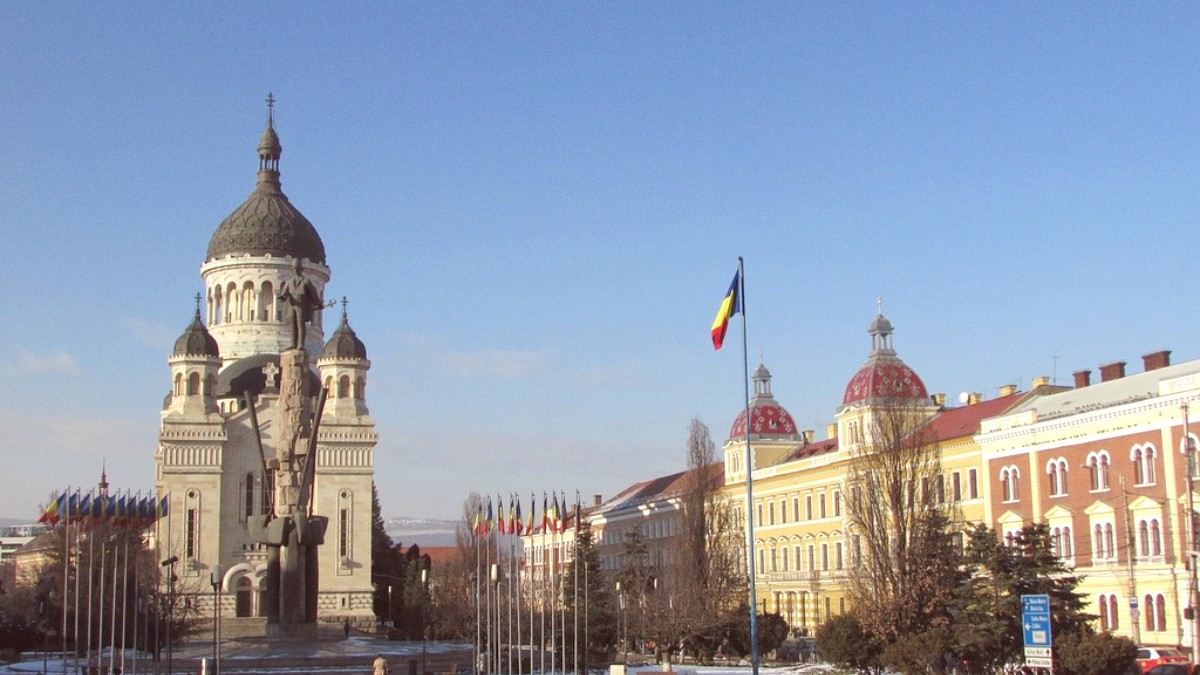
Transylvania, Romania
Each season provides unique experiences, from warm summer festivals to snowy winter landscapes.
Summer (June-August) has warm to hot temperatures, average highs 20-28°C (68-82°F). Occasional thunderstorms occur. Long daylight hours are present for sightseeing and outdoor pursuits. Spring (April-May) features mild and pleasant weather, highs 15-20°C (59-68°F). Less precipitation than summer, city parks bloom.
Low Season (November-March): Best prices for accommodation and flights. Festive atmosphere around holidays. Potential for winter sports. Expect cold weather, short daylight hours. Outdoor activities limit or demand specialized winter gear.
Ideal timing for specific activities: City exploration, café culture, general sightseeing favor shoulder seasons. Outdoor activities (hiking, cycling) are best late spring to early autumn (May-Sep). Festivals (Untold, TIFF) occur in August (Untold) or May/June (TIFF), expect high crowds and increased prices. Winter sports are ideal December through March.
Important notes for local climate.
Common in winter, creating beautiful but cold conditions.
Occasional, though milder than southern Romania. Pack accordingly.
Maximize your shoulder season trip.
Enjoy attractions with less crowded surroundings.
Pack a Light rain jacket for unexpected showers.
Plan for popular events.
Attend Untold or TIFF for lively cultural experiences.
Book well in advance for accommodation and flights during festival times.
EU/EEA/Swiss Citizens: No visa. Enter with valid ID card or passport. Freedom of movement within Romania for any duration. US, Canadian, UK, Australian, New Zealand Citizens: No visa for stays up to 90 days within any 180-day period. Passport validity for at least three months beyond intended departure date is . Other Nationalities: Check official Romanian Ministry of Foreign Affairs (mae.ro) website. A short-stay visa (C visa) is typical for tourism. Application process at a Romanian embassy or consulate; several weeks duration.
All travelers generally need a valid passport. It should contain at least three months of validity beyond your planned departure date. A return ticket or proof of onward travel is common. Proof of sufficient funds for your stay may be requested. Proof of accommodation, like hotel reservations, also assists. No general entry fees apply for tourists. Standard immigration procedures at passport control occur upon arrival. Passport checks occur when entering Romania, even from other EU countries, if arriving by land.
Three months validity beyond departure.
Refer to mae.ro for specific nationality rules.
Recommended for smooth entry.
Demonstrate financial capacity for your trip.
Hotel reservations support your itinerary.
Romania provides good value compared to many Western European destinations.
The official currency is the Romanian Leu (plural: Lei, symbol: RON). Exchange Rate (Approx. Late 2023/Early 2024): 1 EUR ≈ 4.97 RON, 1 USD ≈ 4.58 RON. These rates fluctuate. ATMs are widely available. Credit and debit cards (Visa, Mastercard) are common in most hotels, restaurants, and larger shops. Carry some cash for smaller vendors or markets. Avoid airport exchange services.
These figures are per person, per day, excluding international flights.
This section advises on vaccinations, common health concerns, emergency services, and general safety.
Cluj-Napoca is generally a safe city for travelers. However, standard urban precautions are always wise.
Petty crime: Pickpocketing may occur in crowded areas (public transport, markets, squares). Remain aware of your surroundings. Keep valuables secure. Scams: Be wary of common tourist scams (currency exchange, unsolicited offers). Use official banks or ATMs.
Neighborhoods: The city center is very safe and well-lit. No specific "no-go" areas exist. Standard urban precautions apply, especially when walking alone late at night. Stick to well-lit, populated streets.
Romania sits in a seismically active zone. Major earthquakes are rare in Transylvania, but minor tremors can occur.
Know what to do: Drop, Cover, Hold On.
Do not panic; remain calm.
Heavy rains can cause localized flooding, especially in low-lying areas.
Check local weather alerts during heavy precipitation periods.
Avoid driving through flooded streets.
Summers are hot, winters cold and snowy.
Dress appropriately for the season to prevent heatstroke or hypothermia.
Do not underestimate the effects of very cold or hot weather.
| Service | Number | Notes |
|---|---|---|
| General Emergency | 112 | Ambulance, Fire, and Police (free call) |
| U.S. Embassy in Bucharest | +40 21 200 3300 | No U.S. Consulate in Cluj-Napoca. |
| Travel Insurance | Recommended | Coverage for medical emergencies, trip interruption, lost luggage, evacuation. Research suitable plans. |